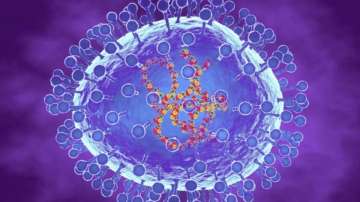Although the cases of COVID and RSV are falling, another respiratory virus called Human metapneumovirus (HMPV) is spreading rapidly. This virus has been slowly making its mark like other deadly viruses and becoming the underdog of the viral world. The Centre for Disease Control and Prevention states that the human metapneumovirus (HMPV) can affect both the upper and lower respiratory tracts in people of all ages, with higher vulnerability in young children, adults, and individuals with weak immune systems.
According to the Centre for Disease Control and Prevention, report says that the positivity rates have decreased during the warmer months, like what is observed for colds and flu. For instance, the data says that the Antigen Detection rate and PCR Detection rate observed in April were 19.395 and 10.638, respectively which has fallen to the rate of 0.000 and 2.558 respectively as observed in the month of May.
How is human metapneumovirus (HMPV) transmitted?
Like most respiratory viruses, HMPV is commonly spread from person to person through close contact with an infected individual, coughing, sneezing, and touching objects that have the virus on them. The CDC says the virus is more likely to circulate during the winter and spring months, like the flu, RSV, and cold viruses.
What are the symptoms of HMPV?
Common symptoms of human metapneumovirus (HMPV) include cough, fever, nasal congestion, and shortness of breath.
What can you do if affected by human metapneumovirus (HMPV)?
Currently, there is no specific treatment or vaccine available for human metapneumovirus (HMPV). In severe cases, medical care may be necessary, and a doctor might prescribe a temporary inhaler and steroids to alleviate wheezing. It is important to note that antibiotics are not effective against viral infections, but they may be used to treat bacterial pneumonia that can occur as a complication of HMPV infection. Therefore, the primary approach to prevention involves good hygiene, such as covering the mouth and nose when coughing or sneezing and frequent handwashing.

